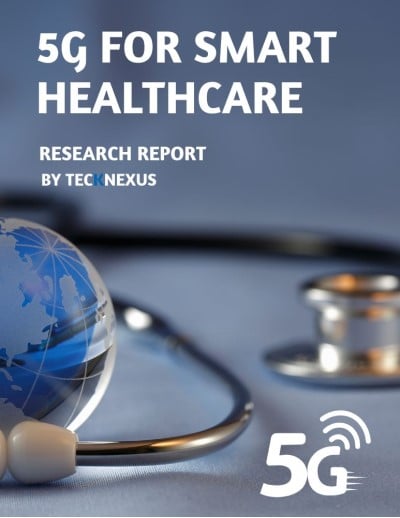5G in Healthcare Research Report Introduction
The “5G in Healthcare” research report offers an in-depth analysis of the impact and potential of 5G technology on the global healthcare industry. The report explores the role of 5G in addressing key challenges and pain points, as well as the various technologies and ecosystem players involved in the development and deployment of 5G networks in healthcare.
The healthcare ecosystem encompasses a wide range of stakeholders, including healthcare providers, patients, payers, and technology vendors. These players play a crucial role in driving the adoption of 5G connectivity and ensuring its successful integration within the industry. The report highlights the specific roles and responsibilities of each ecosystem player in this transformative journey.
5G technology promises to address many of the existing challenges faced by the global healthcare industry, such as the rising demand for accessible and high-quality care, the need for cost reduction, and the growing prevalence of chronic diseases. By enabling high-speed, low-latency, and secure connectivity, 5G has the potential to revolutionize healthcare through a variety of use cases, including remote patient care, telemedicine, augmented and virtual reality-enabled training, robotics and automation in surgical procedures, mobile medical units, wearable devices, and precision medicine.
The report showcases various global deployments of healthcare use cases leveraging 5G connectivity, highlighting the benefits, business drivers, and ecosystem players involved in each case. These examples serve as a testament to the transformative power of 5G in healthcare and provide valuable insights for future deployments.
However, the implementation of 5G in healthcare comes with its own set of challenges and considerations, such as patient privacy and data security, regulatory and legal implications, the establishment of KPIs and SLAs, and ensuring healthcare accessibility in rural and underserved areas. The report provides valuable guidance on addressing these issues and offers recommendations for the healthcare sector.
Key questions covered in the 5G for Healthcare Research Report
Here are some key questions covered in this report on 5G networks for smart healthcare:
- What are the global and regional challenges and pain points facing the healthcare industry?
- Who are the key ecosystem players involved in the development and deployment of 5G networks in healthcare, and what are their roles and responsibilities?
- Which key technologies are enabling digital transformation in healthcare, and what connectivity options are available for the sector?
- What is 5G, and what are the benefits of 5G in smart healthcare?
- What are the costs associated with implementing 5G connectivity in the healthcare sector?
- How does 5G connectivity impact various healthcare use cases, such as remote patient care, telemedicine, augmented/virtual reality training, robotics and automation, mobile medical units, wearable devices, and precision medicine?
- What are some examples of global deployments of healthcare use cases leveraging 5G connectivity, and what benefits do they bring to the healthcare ecosystem?
- What are the key considerations for implementing 5G in healthcare, including patient privacy, data security, regulatory and legal implications, KPIs, SLAs, and healthcare accessibility in rural and underserved areas?
- What recommendations can be drawn from the research report to guide the successful integration of 5G in the healthcare industry?These key questions will provide a comprehensive analysis of the potential of 5G networks for the healthcare industry and offer insights into the benefits, challenges, and opportunities that come with its deployment.
Target Audience for 5G in Healthcare Research Report
This report is tailored towards
- Network operators who have already launched 5G services or intend to launch 5G services
- Technology vendors, system integrators, healthcare institutions, and hospitals who are actively involved in the digital transformation of the healthcare sector
Sample Companies Covered in the 5G for Healthcare Research Report
Below are sample companies covered in the report. In addition, we cover in this report the emerging startups (not listed below) that are enabling smart healthcare.
AT&T, Verizon, T-Mobile, SK Telecom, China Telecom, British Telecom, Telefonica, Vodafone, Deutsche Telekom, Ooredoo, Microsoft, Ericsson, Samsung, Huawei, ZTE, Rush University, Medical Center, Austin Cancer Center, Lawrence J. Ellison Institute for Transformative Medicine, Veterans Health Care, VITAS Healthcare, Emory Healthcare, West China Hospital, China-Japan Friendship Hospital, University Hospitals Birmingham, University Hospital of Bonn, Omron Electronics Medvis, Magic Leap, Visionable, and Zyter
Geographics Covered in the 5G for Healthcare Research Report
Americas, Europe, Asia, Oceania, Middle-East, and Africa.
Table of Content for the 5G in Healthcare Research Report
I. Executive Summary
- A brief overview of the report’s main findings and recommendations
II. Introduction
- Background on the topic
- Overview of the report’s scope and objectives
- Key questions to be addressed
III. Healthcare Ecosystem
- Key ecosystem players involved in the development and deployment of 5G networks in healthcare
- Roles and responsibilities of each ecosystem player
IV. Healthcare Business Drivers and Pain Points
- Key challenges facing the healthcare industry globally
- Regional pain points and drivers for healthcare
V. Technologies Enabling Healthcare Transformation
- Overview of key technologies enabling digital transformation
- Connectivity options for the Healthcare sector
VI. Significance of 5G for Smart Healthcare
- What is 5G?
- What are the benefits of 5G in smart healthcare?
- What are the costs associated with implementing 5G connectivity in the healthcare sector?
VII. Healthcare Use Cases Leveraging 5G Connectivity
- Remote patient care and telemedicine
- Augmented/virtual reality-enabled training and telemonitoring
- Robotics and automation for surgical procedures
- Mobile medical units for emergency care on-route to the hospital
- Wearable devices and sensors for real-time health monitoring
- Precision medicine and genomics
VIII. Sample Global Deployments of Healthcare Use Cases
- Overview of the use case
- Use case benefits to the healthcare ecosystem
- 5G business drivers for the use case
- Ecosystem players enabling the use case
IX. Key considerations for 5G in Healthcare
- Patient privacy and data security
- Regulatory and legal implications
- KPIs and Service level agreements (SLAs)
- Healthcare accessibility in rural and underserved areas
X. Conclusion and Recommendations
XI. References
- List of sources cited in the report


